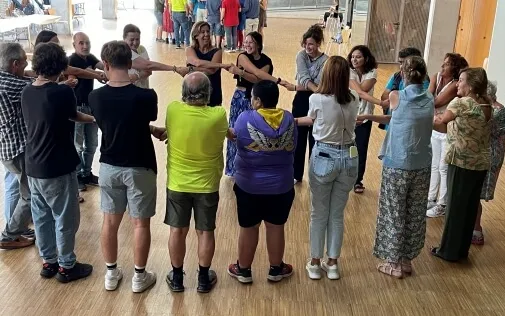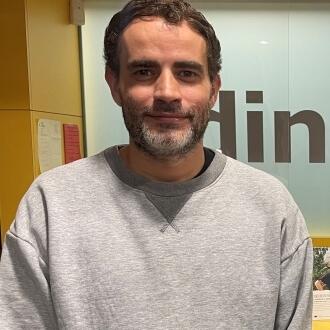
A good example of this real and full participation that we defend is inclusive volunteering, a system in which the person with an intellectual disability participates as a volunteer accompanying people from other groups.
December 3rd was International Day of Disability. It is a date marked on the political and social agenda, a day in which the collective and the defense of its rights takes center stage in public events and news. Unfortunately, that day passes and, the next day, everyone again forgets about people with disabilities, their rights, and how important and necessary it is to work to eliminate all those barriers that hinder their full participation in the society, at all levels and on equal terms with the rest of the public.
And despite the fact that the Convention on the Rights of Persons with Disabilities approved by the United Nations includes in its article 29 the right to social and political participation of the group, the reality is that today there are still many obstacles that they hinder their full and real inclusion in the different areas of the public sphere. At this point, it is important to start from the premise that disability is not the main characteristic that defines the collective, but what is really relevant is its relationship with the environment and the community that surrounds it. And this is where the efforts must be focused, on transforming the environments and offering the necessary supports adjusted to the specificities of each person at each moment. Only in this way will we be able to facilitate and promote this full participation at a public and social level in all those areas that may be the object of your interest. It is crucial that the disabled person can freely choose activities in their environment in which they can collaborate, get to know the people who make up their environment and, above all, be known (and recognized) by others.
A good example of this real and full participation that we defend is inclusive volunteering, a system in which the person with an intellectual disability participates as a volunteer (with the supports they may require) accompanying people from other groups . It is a relationship that allows the disabled person to feel recognized and, at the same time, to be perceived as a committed person and interested in contributing and being part of the social environment that surrounds him, in finding joint solutions to the problems of the around him and, ultimately, a person who becomes co-responsible for building a better world and a fairer society.
It is more than proven that inclusive volunteering processes are beneficial both for the person who receives the support and for the person with an intellectual disability who acts as a volunteer, since through this activity they can gain self-confidence, autonomy and greater knowledge of their social environment and how to create bonds with it. The relationship between equals that is established is of incalculable value and its impact is not limited only to the two subjects involved, but is extended to society as a whole.
It is unquestionable, therefore, that the community side generates opportunities for anyone to experience and work on self-determination. In this sense, inclusive volunteering is a clear example of how to work open to the community and how this favors the generation of opportunities in a transversal way.
Considering all these issues, it seems clear that a greater social commitment is needed in this regard, but not just on a specific day, but during all days of the year. We all need to get involved in the promotion, planning and management of projects that, like inclusive volunteering, are transformative, that aim to put the focus on community work and that allow progress in the full participation of people with disabilities intellectual, recognizing them as active subjects and based on respect for their dignity and the exercise of their rights like any other citizen.



Add new comment